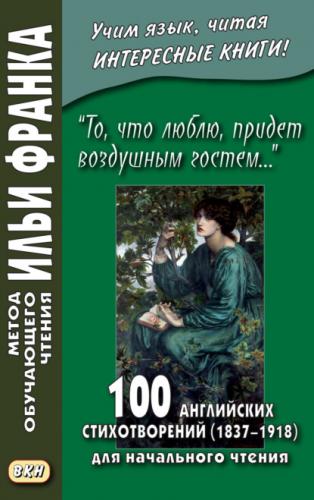He falls as dead (он падает замертво: «как мертвый»; dead [ded] – мертвый; дохлый) and kicked by boys and men (и его пинают мальчики и мужчины: «и пинаем мальчиками и мужчинами»; to kick – ударять ногой или копытом; пинать; лягать),
Then starts and grins (затем вскакивает и скалит зубы; to start – бросаться, кидаться; вскакивать) and drives the crowd again (и снова гонит = отгоняет толпу);
Till kicked (пока, забитый ногами) and torn (и разорванный/растерзанный; to tear [teə] – рвать, разрывать) and beaten out (и побитый до конца/побежденный) he lies (он не лежит)
And leaves his hold (и отпускает свою хватку) and cackles (гогочет/издает резкие, хриплые звуки; to cackle – кудахтать; гоготать), groans and dies (стонет и умирает = простонав, умирает; to groan [ɡrəʋn] – стонать; охать).
When midnight comes a host of dogs and men
Go out and track the badger to his den,
And put a sack within the hole and lie
Till the old grunting badger passes by.
He comes and hears – they let the strongest loose.
The old fox hears the noise and drops the goose.
The poacher shoots and hurries from the cry,
And the old hare half wounded buzzes by.
They get a forkèd stick to bear him down
And clap the dogs and take him to the town,
And bait him all the day with many dogs,
And laugh and shout and fright the scampering hogs.
He runs along and bites at all he meets:
They shout and hollo down the noisy streets.
He turns about to face the loud uproar
And drives the rebels to their very door.
The frequent stone is hurled wher’er they go;
When badgers fight, then everyone’s a foe.
The dogs are clapped and urged to join the fray;
The badger turns and drives them all away.
Though scarcely half as big, demure and small,
He fights with dogs for hours and beats them all.
The heavy mastiff, savage in the fray,
Lies down and licks his feet and turns away.
The bulldog knows his match and waxes cold
The badger grins and never leaves his hold.
He drives the crowd and follows at their heels
And bites them through – the drunkard swears and reels.
The frighted women take the boys away,
The blackguard laughs and hurries on the fray.
He tries to reach the woods, an awkward race,
But sticks and cudgels quickly stop the chase.
He turns again and drives the noisy crowd
And beats the many dogs in noises loud.
He drives away and beats them every one,
And then they loose them all and set them on.
He falls as dead and kicked by boys and men,
Then starts and grins and drives the crowd again;
Till kicked and torn and beaten out he lies
And leaves his hold and cackles, groans and dies.
Elizabeth Barrett Browning
(1806–1861)
«How do i love thee? Let me count the ways…»
How do I love thee (как я люблю тебя)? Let me count the ways (позволь мне перечислить образы/способы /любви/; to count [kaʋnt] – пересчитывать; вычислять, подсчитывать, считать; way – путь; образ, способ).
I love thee to the depth and breadth and height (я люблю тебя до /той/ глубины, и ширины, и высоты; thee [ði:] – /уст., поэт./ тебе, тебя, тобой /личн. мест.: косвенный падеж от thou [ðaʋ] – ты/; breadth [bredθ] – ширина; height [haɪt] – высота)
My soul can reach, when feeling out of sight (/которых/ может достичь моя душа, когда устремляется из видимого мира; to feel – щупать, осязать, трогать, прикасаться; /= to feel about/ шарить, искать ощупью; ощущать, чувствовать; out – наружу; sight – зрение; поле зрения, видимость: to disappear [,dɪsə'pɪə] from sight – исчезнуть из поля зрения)
For the ends of Being and Ideal Grace (к пределам бытия и идеальной/совершенной благодати; end – конец, край; цель; ideal [aɪ'dɪəl] – идеал, образец, верх совершенства; идеальный, совершенный; воображаемый, мысленный; grace – грация; изящество; благодать; милость Господня).
I love thee to the level of every day’s (я люблю тебя до уровня ежедневной/повседневной; level ['lev(ə)l] – уровень; степень, ступень)
Most quiet need (самой спокойной потребности = как самую
